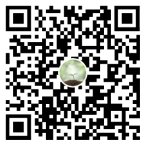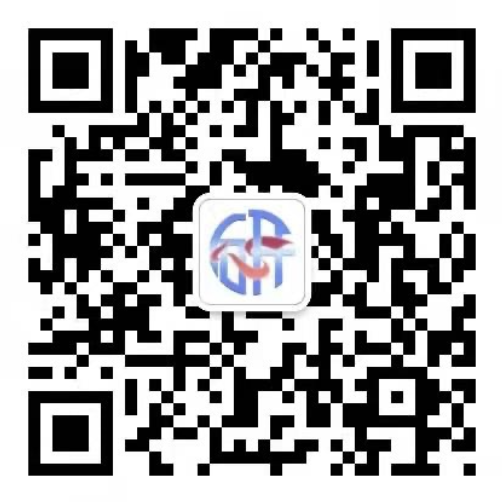
王金良(1981-),山东东营人,西南大学心理学部三级教授,发展与教育心理学专业博士生导师,美国密歇根大学访问学者,密歇根大学Flint青少年心理健康项目研究人员(Research staff),入选全球高被引科学家、全球前2%顶尖科学家、重庆英才计划青年拔尖人才。任Addition Research & Theory (SSCI, JCR)副主编(Handling editor)、Youth & Society(SSCI)、International Journal of Mental Health Promotion(SSCI)编委、德语国家教育心理学旗舰期刊Zeitschrift für Pädagogische Psychologie (German Journal of Educational Psychology;SSCI) 科学顾问。
现为重庆市人文社会科学重点研究基地心理健康教育研究中心副主任,中国社会学会社会心理学专委会常务理事、中国社会心理学会青年委员会副主任、中国社会心理学会理事、中国社会心理学会心理健康专业委员会委员、中国心理学会网络心理学委员会委员、重庆市社会心理学常务理事。
我们课题组的研究主要集中于学生积极心理的塑造和养成,侧重科研结论在教育情境中的实际应用,具体包括青少年心理健康和社会性发展、网络心理与行为(包括成瘾行为)、心理韧性、心理健康测评与早期预警、学生心理健康干预方案的设计开发等。目前我们在重庆市多个地区的学校开展心理健康服务工作,受益学生人数近6万人次(了解更多信息,请参阅课题组微信公众号)。

本课题组微信公众号二维码:青心网
本人近年来发表SSCI、CSSCI文章100余篇,目前Google引用次数为7300余次,Hi指数为31;担任心理科学、心理发展与教育、Asian Journal of Social Psychology, Personnel Review, Youth & Society, New Media & Society, Psychiatry Research, Journal of Affective Disorder, Asian Journal of Communication, Journal of Adolescence, Computers in Human Behavior, Journal of Early Adolescence, Journal of Social Psychology, Personality and Individual Difference, Addiction Research & Theory, International Journal of Communication, Social Science Computer Review, Journal of Broadcasting & Electronic Media, Children and Youth Service and Review, International Journal of Mental Health Systems等几十个国内外权威期刊杂志审稿人。
代表性论文:(更多文章信息,请参见本人在科研网站ResearchGate上的介绍:https://www.researchgate.net/profile/Jin-Liang-Wang-5)
Gu, J. J., Guo, Y. Y., & Wang, J. L. (2024). Childhood maltreatment and Internet addiction among Chinese adolescents: A moderated mediation model. Journal of Affective Disorders, 350(January), 721–727. https://doi.org/10.1016/j.jad.2024.01.175
Gu, J., Yang, B., & Wang, J.-L. (2024). The role of core self-evaluation between peer victimization and depression: A longitudinal multilevel moderated mediation model and the healthy context paradox in Chinese adolescents. Journal of Affective Disorders, 362(3). https://doi.org/10.1016/j.jad.2024.07.048
Gu, J., Zhan, P., Huang, Z., Cheng, S., Liu, J., Xu, W., Huang, L., & Xu, Y. (2024). Anxiety/depression and Internet addiction: Directions, antecedents,and outcomes. Current Addiction Reports, 0123456789. https://doi.org/10.1007/s40429-024-00565-z
Huang, J., Xie, Z., Shen, X., & Wang, J. (2024). Ostracism and depression among Chinese adolescents: the role of maladaptive cognitive emotion regulation strategies and self-compassion. Current Psychology, 43(39), 30748–30759. https://doi.org/10.1007/s12144-024-06513-4
Li-, X. N., Gou, X., Han, Y., & Zhou, X. (2024). self-concept clarity and envy as mediators between upward social comparison on social networking sites and subjective well- being. British Journal of Developmental Psychology, June, 1–18. https://doi.org/10.1111/bjdp.12538
Li, Y., & Shen, X. (2024). Association between negative life events and suicidal behavior in adolescents : roles of core self-evaluation , depression and gender. Social Psychiatry and Psychiatric Epidemiology. https://doi.org/10.1007/s00127-024-02725-y
Liao, H., Monk, R., Gaskin, J., & Wang, J.-L. (2024). Risk Perception, Cooperation, and Emotional Distress During the COVID-19 Pandemic: Exploring Adaptive Risk Perception. The Journal of Psychology. https://doi.org/10.1080/00223980.2024.2404934
Liao, H., Monk, R. L., Gaskin, J., Wang, J., Liao, H., Monk, R. L., Gaskin, J., & Wang, J. (2024). Risk Perception , Cooperation , and Emotional Distress During the COVID-19 Pandemic : Exploring Adaptive Risk Perception Risk Perception , Cooperation , and Emotional Distress During the COVID-19 Pandemic : Exploring Adaptive Risk Perception. The Journal of Psychology, 0(0), 1–19. https://doi.org/10.1080/00223980.2024.2404934
Shen, X., Zhou, X., Guo, Y., & Wang, J.-L. (2024). Associations of Early-Life Deprivation and Threat with Exploratory Behavior: Moderated Mediation Models of Sensation Seeking and Executive Function. Journal of Interpersonal Violence. https://doi.org/10.1177/08862605241257946
Shen, X., Zhou, X., King, D., & Wang, J. (2024). Uncovering the associations between different motivations and the heterogeneity of problematic smartphone use: a person-centered perspective. Current Psychology, 43(39), 30691–30703.
Shen, X., Zhou, X., Liao, H., McDonnell, D., & Wang, J. (2024). Uncovering the symptom relationship between anxiety, depression, and internet addiction among left-behind children: A large-scale purposive sampling network analysis. Journal of Psychiatric Research. https://doi.org/10.1016/j.jpsychires.2024.01.025
Shen, X., Zhou, X., Yin, X., Mcdonnell, D., & Wang, J. (2024). Facing uncertainties : The longitudinal relationship between childhood maltreatment and exploratory behavior. Child Abuse & Neglect, February, 106714. https://doi.org/10.1016/j.chiabu.2024.106714
Wang, J.-L., Yin, X., Wang, H., King, D. L., & Rost, D. H. (2024). The longitudinal associations between internet addiction and ADHD symptoms among adolescents. Journal of Behavioral Addictions, 1–14. https://doi.org/10.1556/2006.2023.00080
Xu, W., Shen, X., Mcdonnell, D., & Wang, J. (2024). Childhood maltreatment and suicidal ideation among Chinese adolescents : Moderated mediation effect of perceived social support and maladaptive cognitive emotion regulation strategies. Child Abuse & Neglect, 151(August 2023), 106732. https://doi.org/10.1016/j.chiabu.2024.106732
Zhang, Y., Xu, W., Mcdonnell, D., & Wang, J. (2024). The relationship between childhood maltreatment subtypes and adolescent internalizing problems: The mediating role of maladaptive cognitive emotion regulation strategies. Child Abuse & Neglect, 152(April), 106796. https://doi.org/10.1016/j.chiabu.2024.106796
Gu, J., Wang, H., Xu, Y., Zhan, P., & Wang, J. (2023). Childhood maltreatment, basic psychological needs satisfaction, internet addiction and internalizing problems. Journal of Applied Developmental Psychology, 86(April), 101533. https://doi.org/10.1016/j.appdev.2023.101533
Gu, J., & Wang, J. (2023). Basic psychological needs satisfaction profiles and well-being among Chinese adolescents and Chinese university students : The role of growth mindset. Current Psychology. https://doi.org/10.1007/s12144-023-05321-6
Gu, J., Zhan, P., Liu, J., & Wang, J. L. (2023). Strength-based parenting and academic buoyancy: A short-term longitudinal chain mediation model. Current Psychology, 1-8. https://doi.org/10.1007/s12144-023-04892-8
Guo, Y., Gu, J., Gaskin, J., Yin, X., Zhang, Y., & Wang, J. (2023). The association of childhood maltreatment with Internet addiction: The serial mediating effects of cognitive emotion regulation strategies and depression. Child Abuse & Neglect, 140(2), 106134. https://doi.org/10.1016/j.chiabu.2023.106134
Niu, X., Li, J., King, D. L., Rost, D. H., Wang, H., & Wang, J. (2023). The relationship between parenting styles and adolescent problematic Internet use : A three-level meta-analysis. Journal of Behavioral Addictions, 12(3), 652–669. https://doi.org/10.1556/2006.2023.00043
Niu, X., Xie, Y., Gou, L., King, D. L., Gu, J., & Wang, J. (2023). The association between adult attachment and problematic Internet use: A three level meta-analysis. Computers in Human Behavior, 149(2), 107957. https://doi.org/10.1016/j.chb.2023.107957
Shen, X., Li, Z., Sheng, J., Zhou, X., & Wang, J. (2023). Functional MRI of inhibitory control processing in problematic mobile video gamers. Psychiatry Research, 325(May 2022), 115220. https://doi.org/10.1016/j.psychres.2023.115220
Shen, X., & Wang, J. (2023). More than the aggregation of its components : Unveiling the associations between anxiety, depression, and suicidal behavior in adolescents from a network perspective. Journal of Affective Disorders, 326(April 2022), 66–72. https://doi.org/10.1016/j.jad.2023.01.081
Xu, Y., Xie, J., Wang, F. X., Monk, R. L., Gaskin, J., & Wang, J. L. (2023). The impact of Weibo features on user’s information comprehension: The mediating role of cognitive load. Social Science Computer Review, 41(6), 2010–2028. https://doi.org/10.1177/08944393221128941
Liao, H. P., & Wang, J. L. (2023). The impact of epidemic information on the public’ s worries and attitude toward epidemic prevention measures during the COVID-19 outbreak. Current Psychology, 42(1), 145–153. https://doi.org/10.1007/s12144-021-01364-9
占萍萍, 古静静, & 王金良. (2023). 父母教养方式类型与青少年网络成瘾的关系: 认知情绪调节策略的中介作用. 心理与行为研究, 21(6), 776–783.
Yin, X. Q., Zhang, X. X., Scherr, S., & Wang, J. L. (2022). Browsing makes you feel less bad: An ecological momentary assessment of passive Qzone use and young women’s negative emotions. Psychiatry Research, 309, 114373. https://doi.org/10.1016/j.psychres.2021.114373
Zhang, Y., Liao, H., Gu, J., & Wang, J. (2022). Anxiety and depression related to childhood maltreatment in teenagers: Comparing multiple individual risk model, cumulative risk model and latent profile analysis. Child Abuse & Neglect, 128(2), 105630. https://doi.org/10.1016/j.chiabu.2022.105630
Liao, H. P., Pan, X. F., Yin, X. Q., Liu, Y. F., Li, J. Y., & Wang, J. L. (2022). Decreased COVID-related adaptive behavior and increased negative affect: A multivariate latent growth curve model. Journal of Health Psychology, 27(9), 2115–2128. https://doi.org/10.1177/13591053211021651
Gao, J. L., Wang, L. H., Yin, X. Q., Hsieh, H. F., Rost, D. H., Zimmerman, M. A., & Wang, J. L. (2021). The promotive effects of peer support and active coping in relation to negative life events and depression in Chinese adolescents at boarding schools. Current Psychology, 40(5), 2251–2260. https://doi.org/10.1007/s12144-019-0143-5
Sheng, J. R., & Wang, J. L. (2021). Development and psychometric properties of the problematic mobile video gaming scale. Current Psychology, 40(9), 4624–4634. https://doi.org/10.1007/s12144-019-00415-6
Xie, J. Q., Rost, D. H., Wang, F. X., Wang, J. L., & Monk, R. L. (2021). The association between excessive social media use and distraction: An eye movement tracking study. Information & Management, 58(2), 103415. https://doi.org/10.1016/j.im.2020.103415
Shen, X., Wang, H. Z., Rost, D. H., Gaskin, J., & Wang, J. L. (2021). State anxiety moderates the association between motivations and excessive smartphone use. Current Psychology, 40, 1937–1945. https://doi.org/10.1007/s12144-019-0127-5
Wang, J. L., Rost, D. H., Qiao, R. J., & Monk, R. (2020). Academic stress and smartphone dependence among Chinese adolescents: A moderated mediation model. Children and Youth Services Review, 118, 105029. https://doi.org/10.1016/j.childyouth.2020.105029
Xie, J. Q., Zimmerman, M. A., Rost, D. H., Yin, X. Q., & Wang, J. L. (2020). Stressful life events and problematic smartphone usage among Chinese boarding-school adolescents: A moderated mediation model of peer support and depressive symptoms. Addiction Research & Theory, 28(6), 493–500. https://doi.org/10.1080/16066359.2019.1692824
Xu, T., Li, Y., Chen, X., Wang, J. L., & Zhang, G. D. (2020). Effect of physical activity volume on active coping style among martial arts practicing adolescents: The mediating role of self-efficacy and positive affect. Archives of Budo, 16, 315–324. https://www.researchgate.net/publication/348832878
Zhang, X., Rost, D. H., & Reynolds, K. J. (2020). Active and passive social networking sites usage and negative emotions: A reciprocal relationship? Journal of Social and Clinical Psychology, 39(3), 210–228. https://doi.org/10.1521/jscp.2020.39.3.195
Hou, X. L., Wang, H. Z., Hu, T. Q., Gentile, D. A., Gaskin, J., & Wang, J. L. (2019). The relationship between perceived stress and problematic social networking site use among Chinese college students. Journal of Behavioral Addictions, 8(2), 306–317. https://doi.org/10.1556/2006.8.2019.26
Shen, X., & Wang, J. L. (2019). Loneliness and excessive smartphone use among Chinese college students: Moderated mediation effect of perceived stressed and motivation. Computers in Human Behavior, 95, 31–36. https://doi.org/10.1016/j.chb.2019.01.012
Wang, H. Z., Yang, T. T., Gaskin, J., & Wang, J. L. (2019). The longitudinal association between passive social networking site usage and depressive symptoms: The mediating role of envy and moderating role of life satisfaction. Journal of Social and Clinical Psychology, 38(3), 181–199. https://doi.org/10.1521/jscp.2019.38.3.181
Wang, J. L., Sheng, J., & Wang, H. Z. (2019). The association between mobile game addiction and depression, social anxiety, and loneliness. Frontiers in Public Health, 7(September), 1–6. https://doi.org/10.3389/fpubh.2019.00247
Xu, T., Wang, H., Fonseca, W., Zimmerman, M. A., Rost, D. H., Gaskin, J., & Wang, J. L. (2019). The relationship between academic stress and adolescents’ problematic smartphone usage. Addiction Research & Theory, 27(2), 162–169. https://doi.org/10.1080/16066359.2018.1488967
Yin, X. Q., de Vries, D. A., Gentile, D. A., & Wang, J. L. (2019). Cultural background and measurement of usage moderate the association between social networking sites (SNSs) usage and mental health: A meta-analysis. Social Science Computer Review, 37(5), 631–648. https://doi.org/10.1177/0894439318784908
Feng, X., Wang, J., & Rost, D. H. (2018). Akademische selbstkonzepte und akademische selbstwirksamkeiten : Interdependenzen und beziehungen zu schulischen leistungen. Zeitschrift Für Pädagogische Psychologie, 32, 23–38. https://doi.org/10.1024/1010-0652/a000218
Wang, J., Hsieh, H., Assari, S., Gaskin, J., & Rost, D. H. (2018). The protective effects of social support and engagement coping strategy on the relationship between perceived discrimination and psychological distress among Chinese migrant children. Youth & Society, 50(5), 593–614. https://doi.org/10.1177/0044118X15619804
Wang, J. L., Gaskin, J., Rost, D. H., & Gentile, D. A. (2018). The reciprocal relationship between passive social networking site (SNS) usage and users’ subjective well-being. Social Science Computer Review, 36(2), 511–522. https://doi.org/10.1177/0894439317721981
Xie, X., Dong, Y. A. N., & Wang, J. (2018). Sleep quality as a mediator of problematic smartphone use and clinical health symptoms. Journal of Behavioral Addictions, 7(2), 466–472. https://doi.org/10.1556/2006.7.2018.40
Hou, X. L., Wang, H. Z., Guo, C., Gaskin, J., Rost, D. H., & Wang, J. L. (2017). Psychological resilience can help combat the effect of stress on problematic social networking site usage. Personality and Individual Differences, 109, 61–66. https://doi.org/10.1016/j.paid.2016.12.048
Wang, J., Wang, H., Gaskin, J., & Hawk, S. (2017). The mediating roles of upward social comparison and self-esteem and the moderating role of social comparison orientation in the association between social networking site usage and subjective well-being. Frontiers in Psychology, 8(May), 1–9. https://doi.org/10.3389/fpsyg.2017.00771
Yin, X. Q., Wang, L. H., Zhang, G. D., Liang, X. B., Li, J., Zimmerman, M. A., & Wang, J. L. (2017). The promotive effects of peer support and active coping on the relationship between bullying victimization and depression among Chinese boarding students. Psychiatry Research, 256(2), 59–65. https://doi.org/10.1016/j.psychres.2017.06.037
Hsieh, H. F., Heinze, J. E., Aiyer, S. M., Stoddard, S. A., Wang, J. L., & Zimmerman, M. A. (2015). Cross-domain influences on youth risky driving behaviors: A developmental cascade analysis. Journal of Applied Developmental Psychology, 38, 11–21. https://doi.org/10.1016/j.appdev.2015.03.002
Hu, T., Zhang, D., & Wang, J. (2015). A meta-analysis of the trait resilience and mental health. Personality and Individual Differences, 76, 18–27. https://doi.org/10.1016/j.paid.2014.11.039
Hu, T., Zhang, D., Wang, J., Mistry, R., Ran, G., & Wang, X. (2014). Relation between emotion regualtion and mental health: A meta-analysis review. Psychological Reports, 114(2), 341–362. https://doi.org/10.2466/03.20.PR0.114k22w4
Jackson, L., & Wang, J. (2013). Cultural differences in social networking site use: A comparative study of China and the United States. Computers in Human Behavior, 29(3), 910–921. https://doi.org/10.1016/j.chb.2012.11.024
Wang, J. L., Gaskin, J., Wang, H. Z., & Liu, D. (2016). Life satisfaction moderates the associations between motives and excessive social networking site usage. Addiction Research & Theory, 24(6), 450–457. https://doi.org/10.3109/16066359.2016.1160283
Wang, J. L., Jackson, L. A., Gaskin, J., & Wang, H. Z. (2014). The effects of social networking site (SNS) use on college students’ friendship and well-being. Computers in Human Behavior, 37(4), 229–236. https://doi.org/10.1016/j.chb.2014.04.051
Wang, J. L., Jackson, L. A., Wang, H. Z., & Gaskin, J. (2015). Predicting social networking site (SNS) use: Personality, attitudes, motivation and Internet self-efficacy. Personality and Individual Differences, 80, 119–124. https://doi.org/10.1016/j.paid.2015.02.016
Wang, J. L., Jackson, L. A., & Zhang, D. J. (2011). The mediator role of self-disclosure and moderator roles of gender and social anxiety in the relationship between Chinese adolescents’ online communication and their real-world social relationships. Computers in Human Behavior, 27(6), 2161–2168. https://doi.org/10.1016/j.chb.2011.06.010
Wang, J. L., Wang, H. Z., Gaskin, J., & Wang, L. H. (2015). The role of stress and motivation in problematic smartphone use among college students. Computers in Human Behavior, 53, 181–188. https://doi.org/10.1016/j.chb.2015.07.005
Wang, J. L., Zhang, D. J., & Jackson, L. A. (2013). Influence of self-esteem, locus of control, and organizational climate on psychological empowerment in a sample of Chinese teachers. Journal of Applied Social Psychology, 43(7), 1428–1435. https://doi.org/10.1111/jasp.12099
Wang, J. L., Zhang, D. J., & Zimmerman, M. A. (2015). Resilience theory and its implications for Chinese Adolescents. Psychological Reports, 117(2), 354–375. https://doi.org/10.2466/16.17.PR0.117c21z8
Wang, J. L., Jackson, L. A., Zhang, D. J., & Su, Z. Q. (2012). The relationships among the Big Five Personality factors, self-esteem, narcissism, and sensation-seeking to Chinese University students’ uses of social networking sites (SNSs). Computers in Human Behavior, 28(6), 2313–2319. https://doi.org/10.1016/j.chb.2012.07.001
Zhang, D. J., Wang, J. L., Li, X. L., & Feng, X. L. (2012). Educational psychology in China. Germany Educational Psychology/Zeitschrift Für Pädagogische Psychologie, 26, 57–67. https://doi.org/10.1024/1010-0652/a000060
主持课题:
重庆市社会科学规划重点项目:留守儿童心理社会适应问题的发生机制和干预研究(2021YC006),立项时间:2021年(已结题)。
教育部哲学社会科学后期资助项目:移动终端网络使用对青少年注意力与心理健康的影响研究(20JHQ090),立项时间:2020年(已结题)。
西南大学重大培育项目:青少年移动视频游戏成瘾的发生机制和预防研究(SWU1809006),立项时间:2018年(已结题)。
国家社科基金教育科学规划类项目:青(少)年社交网站使用对心理健康的影响及对策研究。立项时间:2014年(已结题)。
重庆市人文社会科学研究基地重点项目:青少年网络交往的影响因素和后果变量。立项时间:2012年(已结题)。
重庆市人文社会科学研究基地重点项目:大学生个性品质培养研究。立项时间:2009年(已结题)。
教育部人文社会科学课题:中小学教师心理授权研究。立项时间:2010年(已结题)。
中央高校专项资金项目:青少年网络使用的影响因素及后果变量研究。立项时间:2013年(已结题)。
中央高校专项基金重点项目:留守经历对农村儿童青少年社会适应的影响。立项时间:2016年(已结题)。
重庆市人文社会科学研究基地重点项目:心理素质在处境不利儿童心理复原过程中的保护作用分析。立项时间:2016年(已结题)。
主研课题:
美国密歇根大学公共卫生学院课题:A Longitudinal Study of School Dropout and Substance Use.
教育部哲学社会科学研究后期资助项目:当代大学生社会适应的心理学研究。立项时间:2010年。
全国教育科学“十二五”规划2012年度教育部青课题;西部农民工子女的社会适应:基于父母参与的视角;全国教科规划办;2012年12月立项 。
主编(译)书目:
青少年心理韧性与文化, 西南师范大学出版社, 待出版.
青少年社交网站使与心理健康, 科学出版社, 2019.
心理学质性资料分析, 重庆出版社, 2010年.
Methods and Implementary Strategies on Cultivating Students' Psychological Suzhi. Nova Publisher, New York. 2011.
中小学教师心理授权研究, 科学出版社, 2012年.
学生心理素质培养模式及实施策略研究, 科学出版社, 2014年.
学校积极心理学手册, 西南师范大学出版社, 2017年.
获奖情况:
第七届高等学校科学研究优秀成果二等奖(人文社会科学)(著作奖).获奖作品:Methods and Implementary Strategies on Cultivating Students' Psychological Suzhi. Nova Publisher, New York. 2011.
联系方式:wangjinliang09@gmail.com; wjl200789@163.com





